Current News
/ArcaMax

NYC Mayor Mamdani declares full school snow day for Monday with no remote learning
Mayor Zohran Mamdani has announced New York City’s first full school snow day — with no remote learning — in years for Monday in anticipation of a major blizzard.
The mayor made the announcement on social media Sunday, posting a video of a FaceTime call between him and an eighth-grade girl named Victoria who attends public school in ...Read more

Mexico notches a win with Trump by taking out cartel kingpin
A top cartel leader was killed during a raid carried out by Mexican authorities in the western state of Jalisco, fueling violent clashes across the country but winning praise from the U.S.
Nemesio Rubén Oseguera Cervantes, the leader of the Jalisco New Generation Cartel known as “El Mencho,” was slain in a federal operation against the ...Read more
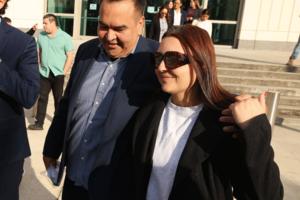
Florida judges are releasing migrants from ICE custody, but a showdown is coming
Reynel Bautista-Anzola, Angel Marquez-Perez and Francisco Delgado-Garcia entered the courtroom shackled on Feb. 9 and, walking in a line, were ushered in by federal officers to wait for their cases to be heard.
The hearing in federal court in Orlando, Florida, was to determine whether the three men, all migrants who’d been in ICE custody for ...Read more
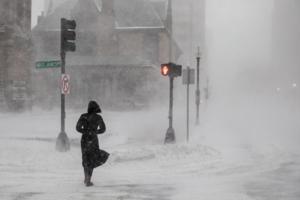
Boston warns of incoming 'intense' blizzard conditions, Boston Public Schools to close Monday
An incoming blizzard is expected to become a potentially historic storm across areas of Massachusetts, bringing over a foot of heavy snow, massively destructive wind gusts, whiteout conditions, power outages and more, public officials warned Sunday.
“Unlike the last storm, which was a ton of snow that came down fast but was light fluffy and ...Read more
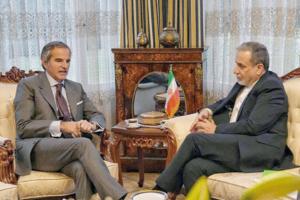
Iran-US nuclear talks set to resume in Geneva on Feb. 26
The U.S. and Iran are set to resume talks Thursday in Geneva, Omani mediators said, extending the search for a diplomatic solution to the latest standoff over Tehran’s nuclear program.
Iranian Foreign Minister Abbas Araghchi said he expects to meet U.S. special envoy Steve Witkoff for the talks and reiterated that Iran won’t be pressured ...Read more

Top cartel leader's killing sparks violent clashes across Mexico
A top cartel leader was killed during a raid carried out by Mexican authorities in the western state of Jalisco, fueling clashes and roadblocks across the country.
Nemesio Rubén Oseguera Cervantes, the leader of the Jalisco New Generation Cartel known as “El Mencho,” was slain in a federal operation against the group on Sunday morning, ...Read more

What we know about the man shot dead at President Trump's Mar-a-Lago estate
Not much beyond artistic talent and where he lived is known about Austin Tucker Martin, the suspect fatally shot after authorities said he pointed a shotgun at law enforcement officers on the grounds of President Donald Trump’s Mar-a-Lago estate in Palm Beach.
Martin died after being shot about 700 miles from his North Carolina home. He was ...Read more
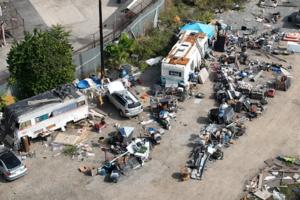
LA wanted to dismantle homeless RVs. A judge just shut that down
A judge has struck down the latest effort by the city of Los Angeles to tow and destroy broken down recreational vehicles, handing a legal victory to a group of Westside homeless advocates.
In a two-page ruling, Superior Court Judge Curtis A. Kin said Los Angeles officials lack the legal authority to carry out a state law that permits the ...Read more
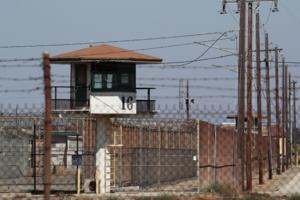
'That man is a monster,' California serial child molester granted parole. Victims are outraged
A Sacramento man once described by a judge as "the monster parents fear the most" seemed destined to spend the rest of his life in prison after he was convicted of 16 counts of kidnapping and child molestation in 1999.
Instead he is now set to go free after being granted elderly parole — much to the anger and horror of some of his victims, as...Read more

Lamont declares state of emergency as blizzard conditions take aim at Connecticut
Gov. Ned Lamont declared a state of emergency in Connecticut in advance of the major winter storm on Sunday.
The state of emergency begins on Sunday at 5 p.m. and will continue through the day on Monday.
Lamont also signed an emergency order that prohibits all commercial vehicles from traveling on all limited access highways statewide in ...Read more

Philly forecast calls for more than a foot of snow to fall Sunday into Monday
Philadelphia and its suburbs are forecast to receive 16 to 22 inches of snow and face blizzard conditions beginning Sunday and continuing into Monday, with weather prediction models sharpening their focus as the storm approaches.
“Mother Nature has spoken again and made it clear that winter is not over,” said Mayor Cherelle L. Parker during...Read more

Why Stephen Colbert is right about the ‘equal time’ rule, despite warnings from the FCC
Talk show host Stephen Colbert made headlines on Feb. 17, 2026, when he wrapped a network statement in a dog-waste bag and tossed it in the trash.
He did it live, while on air.
The move came after CBS lawyers reportedly told him he could not broadcast a scheduled interview with Democratic Texas Senate candidate James Talarico ...Read more
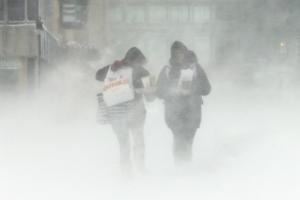
Blizzard warnings up for Philly, all of New Jersey and Delaware
Blizzard warnings are in effect for the Philly area and all of New Jersey and Delaware Sunday through Monday as a storm forecast to match the intensity of a Category 1 hurricane generates “potentially historic” snowfall amounts, the National Weather Service is warning.
A forecast that looked scary Saturday got scarier Sunday morning.
...Read more
One teen is dead, five others injured after shooting inside a KC residence
One teen is dead, and five others are injured after a shooting in Kansas City Saturday night.
Police were called to the area of the 4900 block of College Avenue just before 10:15 p.m. on a reported shooting. Upon arrival, they found a 16-year-old unresponsive and suffering from a gunshot wound, who later died at the hospital, according to ...Read more

NYC declares state of emergency, all streets and bridges closing to regular traffic
Mayor Zohran Mamdani declared a state of emergency Sunday as forecasts estimated the blizzard bearing down on New York City could bring nearly two feet of snow.
As of 9 p.m. Sunday, all streets, highways and bridges will be closed until noon Monday, Mamdani announced. Only essential and emergency vehicles will be allowed to travel city streets....Read more

Armed intruder killed at President Trump's Mar-a-Lago estate, authorities say
An armed man who got onto the property of President Donald Trump’s Mar-a-Lago home in Palm Beach was shot dead overnight by U.S. Secret Service agents and a Palm Beach County Sheriff’s Office deputy, the agencies said.
A federal source familiar with the investigation identified the man as Austin Tucker Martin, a 21-year-old whose family had...Read more

Trump's Mar-a-Lago has seen security issues through the years. Here's a rundown
Secret Service agents and a sheriff’s deputy have shot and killed an armed man near Mar-a-Lago. It wasn’t the first time President Donald Trump’s Palm Beach estate has faced intrusions and scandals.
Here’s a rundown:
SUV sprayed with bullets at Mar-a-Lago
In February 2020, law enforcement officers sprayed an SUV with bullets while it ...Read more
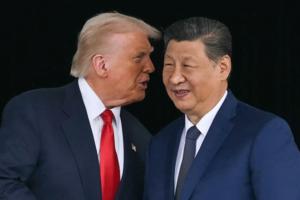
Xi gains leverage before Trump summit after tariff reversal
Chinese President Xi Jinping is heading to the negotiating table with Donald Trump with a boost in bargaining power, after the U.S. leader lost his ability to quickly raise tariffs for nearly any reason.
Weeks before Trump lands in Beijing on March 31, the first trip by an American president since his last visit in 2017, the Supreme Court ...Read more
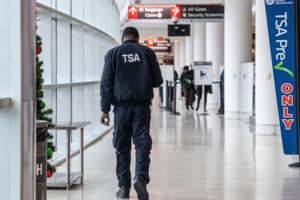
DHS reverses suspension of PreCheck as it takes shutdown steps
The Transportation Security Administration said it will continue to operate the PreCheck program after the Department of Homeland Security earlier said it will temporarily pause several programs that speed up some travelers’ progress through airports.
DHS originally said that it would suspend the operations of PreCheck lanes starting Sunday ...Read more

SpaceX fleet-leading booster makes record 33rd trip to space
SpaceX padded the record for its most-flown rocket booster late Saturday with its 33rd trip to space.
A Falcon 9 flying 28 Starlink satellites launched from Cape Canaveral Space Force Station’s Space Launch Complex 40 at 10:47 p.m.
The first-stage booster first launched in June 2021 and has been the pace setter for SpaceX’s reusability ...Read more
Popular Stories
- US accepted Iran's bid to maintain uranium enrichment, ISNA says
- Why you can salvage moldy cheese but never spoiled meat − a toxicologist advises on what to watch out for
- The only thing limiting Taylor Swift’s popularity is partisan polarization
- Measles case confirmed in a person who visited a Montgomery County car dealership and a Wawa
- Bodies of all 9 skiers killed in Tahoe-area avalanche retrieved, as slide risk lowered slightly





